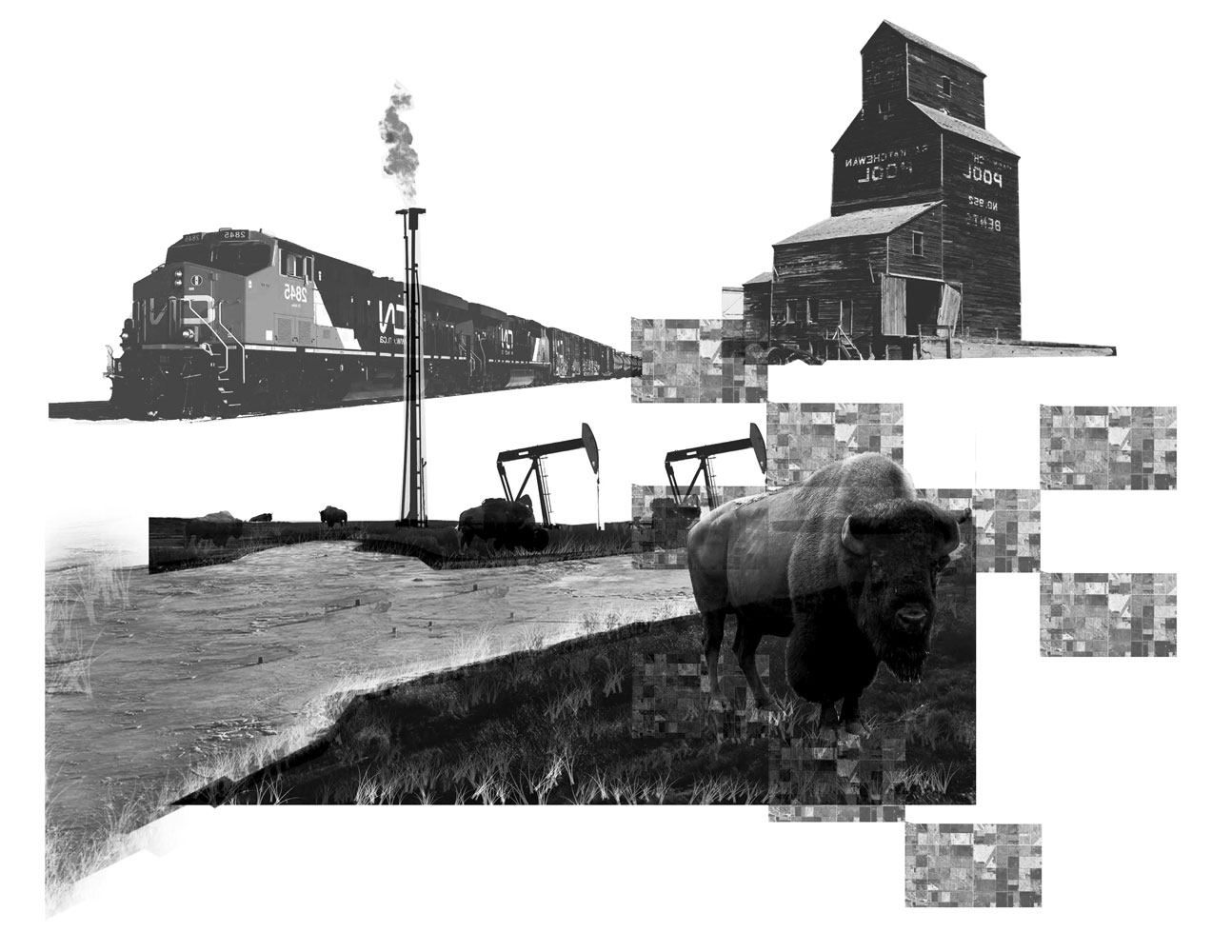I recently read an article on the Keystone XL pipeline from the CBC titled “Romney vows quick approval of Keystone XL pipeline,” which given the current hostile political climate in the United States, has turned into a highly controversial issue. The Keystone XL pipeline is a proposal to extend the existing pipeline that runs from Alberta to Nebraska into Texas along with another twined route through Alberta to Nebraska. I feel that in order to stop our dependency on oil we must first stop the construction of infrastructure to support inexpensive consumption of fossil fuels. There are several reasons to halt this expansion: fossil fuels are the leading emitter of greenhouse gases, oil spills happen at sea or on land and damage ecosystems, oil infrastructure creates an eyesore on the landscape, and building new infrastructure only speeds the burning of fossil fuels and hastens the coming crash.
Proponents of oil infrastructure often claim that we need off-shore oil platforms, pipelines, and new refineries to keep up with the increasing demand for fossil fuels. Demand for fossil fuels in the United States has steadily increased over time while production has not kept pace. The United States now imports 60 per cent of all the oil that is consumed there. The imported oil often comes from unstable regions in the world such as Sudan, the Middle East and South America. Building new pipelines to bring Canadian oil south at a lower cost and drilling offshore have never looked as promising to bring stable energy resources and economic benefits to the United States.
The proponents of oil infrastructure also make the claim that the industry is safe, yet the safety record of oil infrastructure over time has been very inconsistent. Some spills have been minimalized while others have spewed millions of barrels of oil. One instance was the British Petroleum oil spill in the Gulf of Mexico in 2010 where it was later found that there was faulty equipment that should have been replaced and yet was not because of corruption in the regulating body of government. This highlights the possible uncertainty that comes with production and transport of large quantities of oil. Sometimes it does not matter whether the most sophisticated technology is utilized; there is always the chance that something will go wrong.
One of the main reasons that we need to halt construction of oil infrastructure is the detrimental effect burning fossil fuel has on our atmosphere and environment. The production of oil causes the release of CO2, especially in the case of the tar sands in Northern Alberta. Massive amounts of energy are needed to power and produce the equipment that is used to extract the oil as well as the energy intensive process of refining the oil into whichever product or form the oil needs to be in. Finally, the consumption of the finished product creates CO2 when the gasoline or plastic product is burned or broken down. All of these emissions add up very quickly and the inefficiency of the fossil fuel based system becomes apparent.
A second reason oil infrastructure should not be built is the probability of an oil spill which severely damages animal and plant life, including humans. The damage to humans includes economic damage such as lost crops and long term health costs such as cancer or poisoned water. Tourism can also suffer from oil spills. One example of this is the BP Gulf of Mexico spill where ocean animals are stills suffering the effects of the spill. All ecosystems are sensitive to change, yet many oil spills occur in the most fragile ones. Oil spills are potentially more frequent than people think. Only the largest spills make the news headlines, which shield the public from the frequency of spills. The easiest way to deal with oil spills is to simply leave the oil in the ground.
The final point on why not to build oil infrastructure is simply that the infrastructure has only one use, since oil is finite; meaning once the oil is all extracted there will be no use for the equipment. The irony is that the faster we remove the oil the faster the new infrastructure becomes useless. In contrast if we reduced the extraction rate the current infrastructure would be usable for a longer period, essentially making the profits for companies higher and leaving no need to build more infrastructure.
However we look at the coming fossil fuel crisis, it is going to be just that: a crisis. Not building oil infrastructure will lessen the increase of CO2 per year as well as leave less potential for oil spills. Not having the ugly eyesores of oil platforms, refineries and pipelines will help tourism in certain areas and also extend the time period that humanity has for using fossil fuels to convert our main energy source to renewable sources. I sincerely hope that we stop building detrimental oil infrastructure for the sake of ourselves and for the diversity of the biosphere.





Why is the rate of extraction relevant?
Taking oil out of the ground slower does nothing to reduce CO2 concentrations in the atmosphere. The only strategy that will reduce those concentrations back to 350 ppm is to stop extracting and burning oil and coal and natural gas and leave what is still left in the ground.
For more info see carbontracker.org